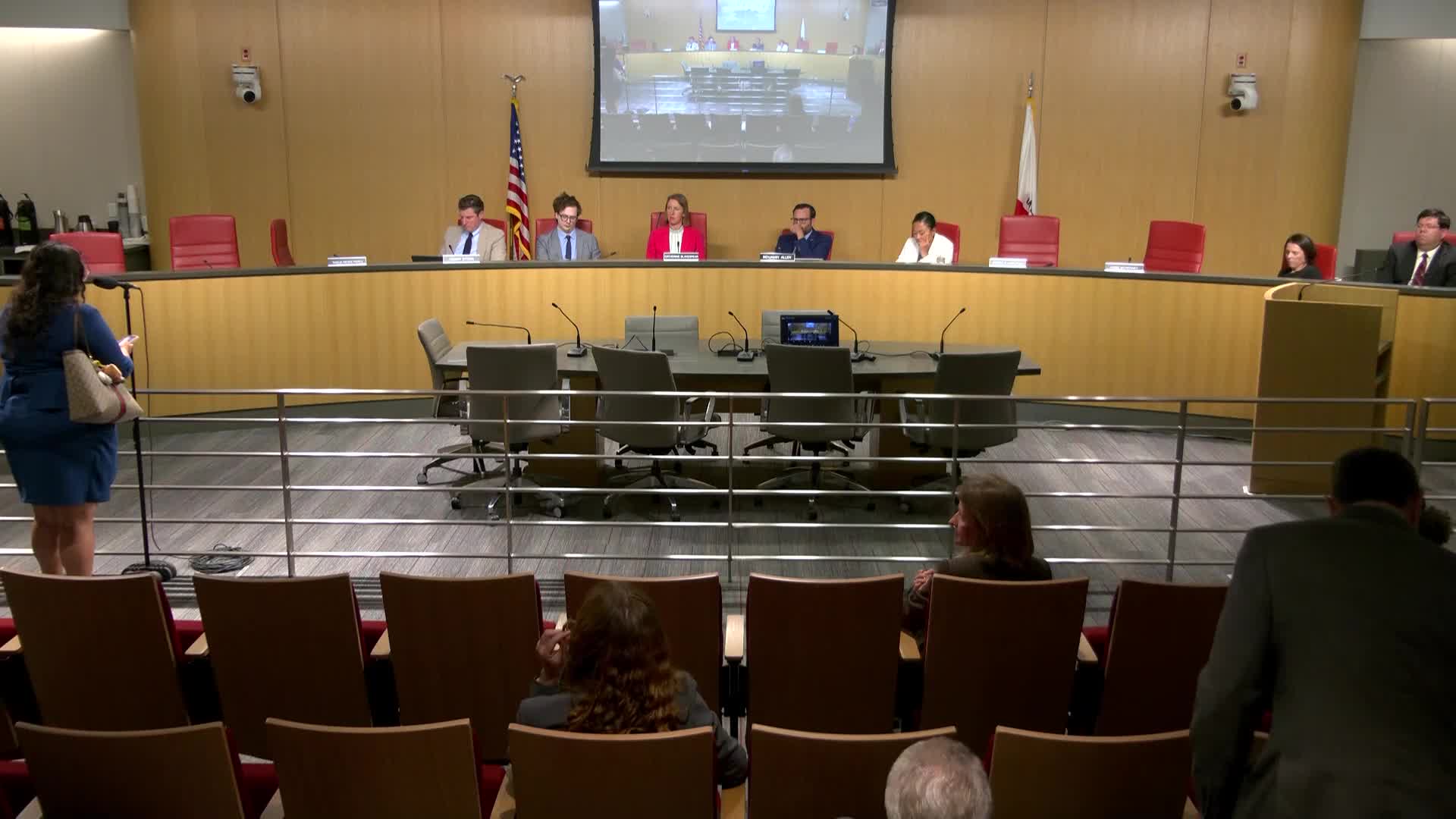California Officials Urge Funding for AB 617 and Environmental Justice Programs
May 08, 2025 | California State Senate, Senate, Legislative, California
This article was created by AI summarizing key points discussed. AI makes mistakes, so for full details and context, please refer to the video of the full meeting. Please report any errors so we can fix them. Report an error »

In a pivotal meeting held by the California State Senate on May 8, 2025, key stakeholders gathered to discuss the future of environmental funding and initiatives aimed at improving air quality and public health across the state. The atmosphere was charged with urgency as representatives from various organizations voiced their concerns about the underfunding of critical programs, particularly the AB 617 initiative, which targets disproportionately impacted communities.
Ryan McCarthy, representing the Orange County Sanitation District, highlighted the need for innovative biosolids management projects, suggesting that even a modest investment from the Greenhouse Gas Reduction Fund (GGRF) could significantly reduce greenhouse gas emissions in the wastewater sector. His call for action underscored the potential for immediate, impactful changes with relatively small financial commitments.
Rebecca Marcus from the American Farmland Trust echoed the sentiment for sustainable practices, advocating for the reauthorization of funding that supports climate-smart agriculture. She emphasized the importance of continuous appropriations to protect vital farmland from conversion, which is crucial for maintaining California's agricultural heritage.
The discussion also touched on the necessity of reauthorizing cap and trade programs to avoid market disruptions. The Union of Concerned Scientists urged legislators to consider adjustments that would benefit lower-income Californians, such as redirecting climate credits to electric customers. This proposal aims to alleviate financial burdens while promoting decarbonization efforts.
Graciela Castillo Crings from Enterprise Community Partners passionately supported the Affordable Housing and Sustainable Communities program, which aims to create complete neighborhoods that reduce greenhouse gas emissions while addressing housing affordability. Her remarks highlighted the interconnectedness of housing and environmental sustainability, calling for continued funding to ensure these initiatives thrive.
Alan Abbs from the Bay Area Air Quality Management District provided insights into the AB 617 program's successes and challenges. He noted that while local air districts have made strides in engaging communities, they often lack the authority to implement all desired changes. His plea for ongoing support emphasized the importance of collaboration between state agencies and local districts to enhance air quality initiatives.
As the meeting concluded, the overarching theme was clear: California's environmental programs require sustained financial support and innovative approaches to effectively address the pressing challenges of air quality and climate change. The discussions set the stage for future legislative actions that could shape the state's environmental landscape for years to come, leaving attendees with a sense of both urgency and hope for meaningful progress.
Ryan McCarthy, representing the Orange County Sanitation District, highlighted the need for innovative biosolids management projects, suggesting that even a modest investment from the Greenhouse Gas Reduction Fund (GGRF) could significantly reduce greenhouse gas emissions in the wastewater sector. His call for action underscored the potential for immediate, impactful changes with relatively small financial commitments.
Rebecca Marcus from the American Farmland Trust echoed the sentiment for sustainable practices, advocating for the reauthorization of funding that supports climate-smart agriculture. She emphasized the importance of continuous appropriations to protect vital farmland from conversion, which is crucial for maintaining California's agricultural heritage.
The discussion also touched on the necessity of reauthorizing cap and trade programs to avoid market disruptions. The Union of Concerned Scientists urged legislators to consider adjustments that would benefit lower-income Californians, such as redirecting climate credits to electric customers. This proposal aims to alleviate financial burdens while promoting decarbonization efforts.
Graciela Castillo Crings from Enterprise Community Partners passionately supported the Affordable Housing and Sustainable Communities program, which aims to create complete neighborhoods that reduce greenhouse gas emissions while addressing housing affordability. Her remarks highlighted the interconnectedness of housing and environmental sustainability, calling for continued funding to ensure these initiatives thrive.
Alan Abbs from the Bay Area Air Quality Management District provided insights into the AB 617 program's successes and challenges. He noted that while local air districts have made strides in engaging communities, they often lack the authority to implement all desired changes. His plea for ongoing support emphasized the importance of collaboration between state agencies and local districts to enhance air quality initiatives.
As the meeting concluded, the overarching theme was clear: California's environmental programs require sustained financial support and innovative approaches to effectively address the pressing challenges of air quality and climate change. The discussions set the stage for future legislative actions that could shape the state's environmental landscape for years to come, leaving attendees with a sense of both urgency and hope for meaningful progress.
View full meeting
This article is based on a recent meeting—watch the full video and explore the complete transcript for deeper insights into the discussion.
View full meeting
